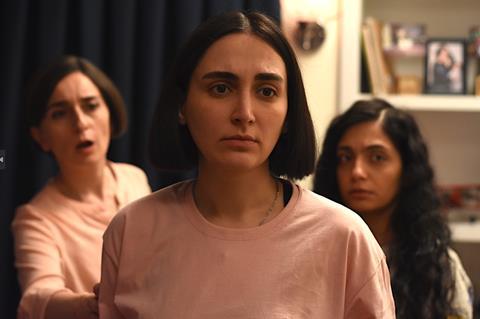
In a slow-burning thriller, a man tracked by an authoritarian regime goes on the run to avoid another stint in prison, treks through the mountains on foot and escapes just in time to premiere his film shot completely in secret to global acclaim. What sounds like the melodramatic plot of a movie is, in fact, only the abridged version of the extraordinary journey to bring Mohammad Rasoulof’s The Seed Of The Sacred Fig from script to screen.
The making of the politically charged domestic-drama thriller has become an inseparable element of the film itself — which tells the story of an investigating judge, newly appointed to the Revolutionary Court in Tehran, whose relationship with his wife and two daughters implodes amid a tumultuous period of political unrest in Iran.
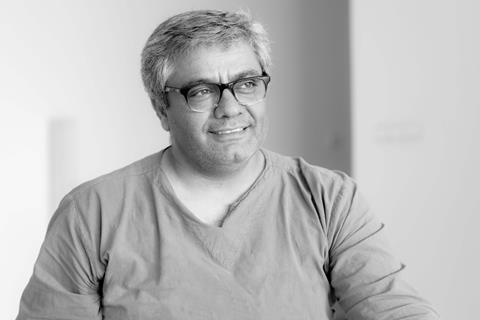
Shot clandestinely before premiering at Cannes in May where it won the special jury prize, The Seed Of The Sacred Fig has played a slew of festivals including Locarno, Telluride, Toronto and New York, and has been selected by Germany as its entry to the international feature Oscar. Unless there is regime change, the film will never be seen in cinemas in Iran, where the filmmaker faces an eight-year prison sentence and flogging handed down by Iran’s Islamic Revolutionary Court — but Rasoulof insists that is precisely why he made it.
“My goal has always been to get my films to the people of Iran, but that is impossible in such a despotic system.” Instead, he explains, “I make films that I send off to fly like a boomerang outside of Iran so they can return to Iran. In this sense, there is some form of justice at play.”
Quick turnaround
Justice and the Iranian system’s harsh approach to it is the driving force of The Seed Of The Sacred Fig, a project that germinated for Rasoulof when he was in jail serving a previous prison sentence for making films deemed by the government to be “propaganda”.
“Outside the prison, the ‘Woman, Life, Freedom’ movement was unfolding,” he explains. “A new generation had taken us by surprise in such a way that it felt they had grown out of the ground. I felt sudden and extraordinary hope. I thought society had become stagnant, but in that moment, just when we least expected it, everything changed.”
Even when behind bars, Rasoulof lost neither hope nor an ironic sense of humour. “I once told my interrogator, ‘I will cast you for one of my films.’ Even though I was blindfolded and facing a wall and never saw his face.” After being freed from prison, Rasoulof knew a renewed sentence was looming and had about eight months to make a film in the meantime.
“Mohammad contacted me and said he wanted to make a film as quickly as possible and as confidentially as possible,” says Films Boutique CEO Jean-Christophe Simon, who is selling The Seed Of The Sacred Fig and produced the film through his French company Parallel45 alongside Rozita Hendijanian and Mani Tilgner of Germany’s Runway Pictures in co-production with Arte France Cinéma.
The feature — the 52-year-old’s 10th in a career spanning just over two decades — was not cast in a traditional way and actors were not aware they were working on a Mohammad Rasoulof film since, he describes, “I’m known in Iran as a cultural gangster.”
Misagh Zare, Soheila Golestani, Mahsa Rostami and Setareh Maleki lead the cast — respectively as judge Iman, wife Namjeh, and their daughters Rezvan and Sana. “Finding them was not difficult. Negotiating with them was difficult,” says Rasoulof. “We brought them in gradually.” Initially the actors were told it was a short film; then the actresses were told they would not be wearing the usual — mandatory for women — hijab headscarf in certain scenes, before details of the more politically charged elements of the script were eventually revealed.
“A number of times people dropped out,” recalls Rasoulof, “because they didn’t have conditions to co-operate” — namely personal family situations that would make working on such a project too risky.
During the covert shoot, Rasoulof directed remotely and even provided a “plan B script”. When Iranian authorities came to check in on the film, the cast and crew would quickly pretend to be shooting a completely different movie — female cast members covered their heads, and Rasoulof recalls “sometimes members of the crew had no choice but to sit on the director’s chair”, describing the process as “a thriller comedy” in itself.
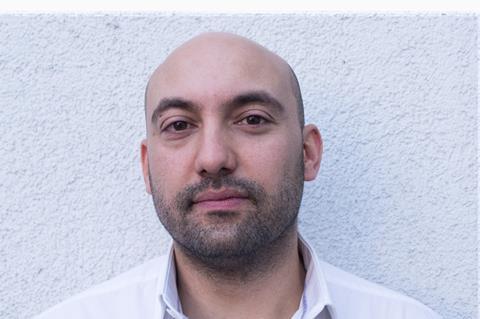
Simon adds: “The rushes came in regularly and securely, but I can’t say how. Mohammad was simultaneously editing while he was shooting.”
Rasoulof and Simon prefer to keep silent on the current status of the cast and crew, in case any comment causes an issue at home. Both Rostami and Maleki were able to attend the film’s Cannes premiere.
The Seed Of The Sacred Fig shot from December 2023 to March 2024. When the director learned of his official sentencing, he says he had just two hours to decide whether to remain in Iran and face nearly a decade in jail or leave and hope to make more of an impact beyond its borders.
“I called my producers and told them, ‘Anything can happen at any moment. Even if there are obstacles, even if I get arrested again, even if I die, it’s important this film makes it to a big screen. You have got to get it out there.’”
The great escape
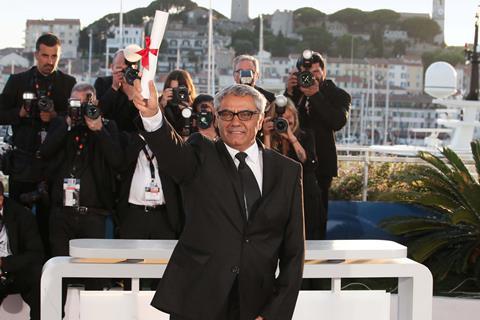
All of the editing and post-production was done between Germany and France, much of it when Rasoulof was effecting his protracted escape journey. “We were very worried for a long time,” says Simon, explaining that Rasoulof left behind all electronic devices, so at one point was unreachable for days before finally landing safely in another country where he was able to contact his production team.
Producers sent Cannes delegate general Thierry Frémaux and his selection committee an unfinished film without any music or effects. The Seed Of The Sacred Fig was completed the night before the official screening at Cannes when the director saw it for the first time in a test projection at the Lumiere theatre.
“The fact the film exists, that it was ready for Cannes, that Mohammad Rasoulof and part of the crew came to Cannes to present it, and that the film received a prize in Cannes, made $4m at the box office in four weeks when it opened in France and is now [selected for] Oscar, is nothing short of a miracle,” says Simon. “We knew that at any moment, everything could suddenly crumble.”
The film’s timely release by Neon in North America and Lionsgate in the UK makes it eligible in multiple categories at the Oscars and Baftas — an outcome never anticipated by the director even if he is no stranger to accolades, having notably won the Berlinale’s Golden Bear in 2020 with There Is No Evil and the top prize in Un Certain Regard at Cannes in 2017 with A Man Of Integrity.
“I had never thought about the Oscars before because in Iran the state chooses the film,” says Rasoulof. “It was always a dream that was turned off for me.
“Filmmakers, during the process of filmmaking, think about when they are going to finish the film, when it’s going to be screened,” he adds. “I’ve never had thoughts like that.”
The prime focus remains on the message he aims to send home to Iran via audiences across the globe: “Just have hope.”

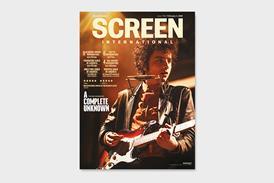
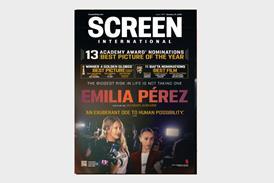

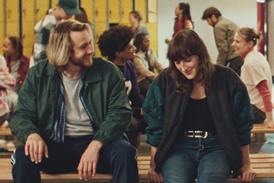
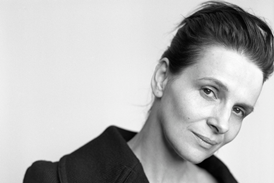
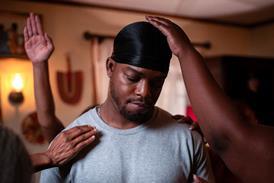
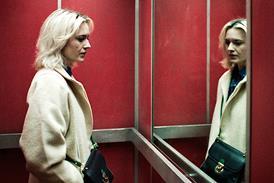


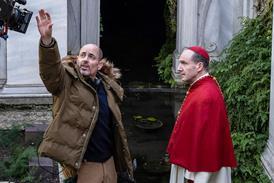



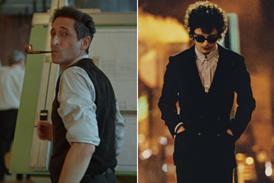








No comments yet